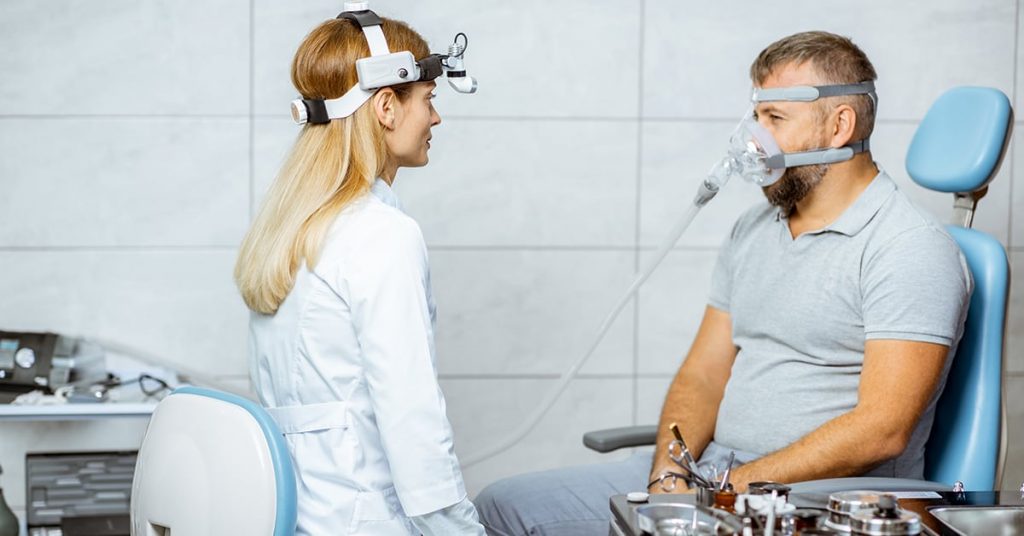
Sleep apnea is a sleep disorder characterized by repetitive pauses in breathing during sleep. Treatment options for sleep apnea include:
- Continuous Positive Airway Pressure (CPAP): A device that delivers air pressure through a mask to keep the airways open during sleep.
- Oral Appliances: Custom-fit mouthpieces that reposition the jaw and tongue to help maintain an open airway.
- Lifestyle Changes: Losing weight, avoiding alcohol and sleeping on your side can help alleviate symptoms of sleep apnea.
- Surgery: In severe cases, surgery may be recommended to remove excess tissue from the throat that is blocking the airway.
- Behavioral Therapies: Such as positional therapy, which trains people to sleep on their side.

CPAP (Continuous Positive Airway Pressure) masks are essential components of CPAP therapy for sleep apnea. They are worn over the nose and/or mouth during sleep to deliver air pressure and keep the airways open. There are several types of CPAP masks, including:
- Nasal Pillows: Small, cushioned cones that fit into the nostrils.
- Nasal Masks: Cover the nose and have straps that secure the mask to the head.
- Full Face Masks: Cover both the nose and mouth and are ideal for people who breathe through their mouth.
- Hybrid Masks: A combination of nasal pillows and a full face mask.
It is important to find a comfortable and well-fitting mask to ensure effective therapy and improve compliance. A doctor or sleep specialist can assist in finding the best CPAP mask for your needs.
Contact us to get about sleep apnea treatment